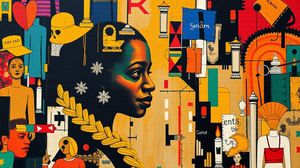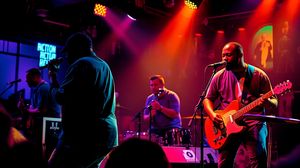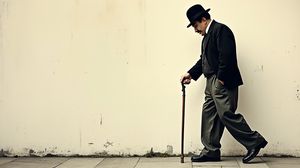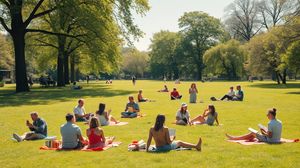
The Black Cultural Archives in Brixton is the UK's only national heritage center dedicated to preserving and celebrating the history, art, and culture of Black people in Britain. Situated in the vibrant area of Brixton, the archives are housed in a historic Georgian building, conveniently located in Windrush Square.
Established in 1981, the Black Cultural Archives was the brainchild of Len Garrison, a key figure in documenting the Black experience in Britain. The archives began as a grassroots initiative and have grown into an indispensable institution for scholars, artists, and anyone interested in Black British history.
The archives house an extensive collection of historical artifacts, photographs, and personal testimonies that span centuries of Black presence in the UK. These items provide a rich tapestry of the lived experiences, achievements, and struggles of Black communities, making it an enlightening stop for history buffs.
Not only a repository of the past, the Black Cultural Archives is also a dynamic cultural space. It regularly hosts exhibitions, workshops, and educational programs focused on engaging the community and fostering understanding and appreciation of Black history and culture.
A particularly unique feature of the Black Cultural Archives is its commitment to oral histories. The center captures personal narratives from individuals who have experienced pivotal moments in Black British history, ensuring a personal and human touch to the historical record.
Over the years, the Black Cultural Archives has become a pivotal site for activism and community engagement in Brixton. Its location in Windrush Square underscores its role as a beacon of history, culture, and community for both the local and broader national audience.
In 2014, the Black Cultural Archives underwent a significant transformation, with a major renovation that allowed them to expand their facilities and services. The refurbishment was partly aimed at making the archives more accessible and inviting to a wider audience.
The Black Cultural Archives plays a crucial role in knowledge preservation and dissemination, offering invaluable resources to students, researchers, and anyone interested in delving deeper into Black British heritage. Its commitment to education and inclusion makes it a must-visit destination in London.

Making the Most of Your Visit:
Take some time to explore the Windrush Square where the Black Cultural Archives is located. It's not only a culturally significant area but also a lovely spot to sit with a coffee and soak in the vibrant community atmosphere.
Check out the events calendar before your visit. The archives often host a range of engaging events including exhibitions, talks, and film screenings that can enhance your understanding and enjoyment of the center.
Spend time exploring the oral histories section. These personal narratives provide a deeply personal perspective and bring the history to life in a way that's both educational and moving.
Plan to visit the on-site café. Not only is it a good spot to relax, but it often serves locally-sourced treats and offers a taste of the real Brixton community experience.
Don't rush your visit. The richness of the artifacts, photographs, and stories is best appreciated with a slow and thoughtful exploration. Allocate a few hours if you're keen to delve deeply into the many exhibits and stories.

Visiting Times & Costs:
The Black Cultural Archives in Brixton is open to the public. It is generally open from Tuesday to Saturday, from 10:00 AM to 6:00 PM. However, it is recommended to check their schedule in advance, as there might be changes or special events that could affect these timings.
The entrance to the Black Cultural Archives is free, but donations are encouraged to support their initiatives and programs.
Regarding accessibility, the Black Cultural Archives is committed to being accessible to all visitors. The facility includes step-free access, making it convenient for wheelchair users and those with mobility issues. Additionally, there are accessible toilets available on-site. It's advisable for anyone with specific accessibility needs to confirm details prior to their visit.

Address & Map:

Nearby:























